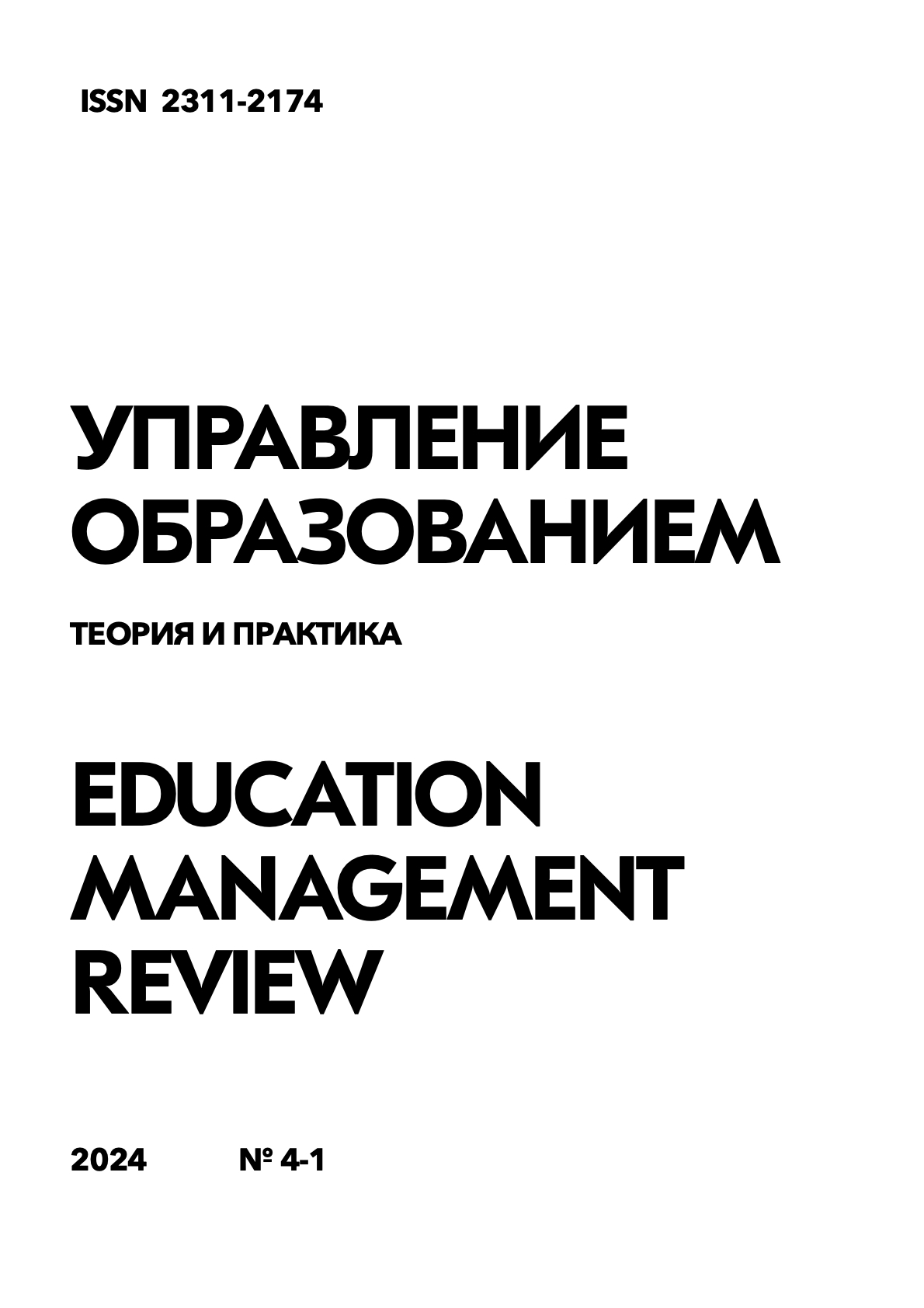Development and management of the implementation of micro-learning programs in the teaching of RCT
Keywords:
micro-education, Russian as a foreign language, education management, language competence, online platform, learning effectivenessAbstract
This article discusses the issues of developing and managing the implementation of micro-learning programs in teaching Russian as a foreign language (RCT) from the point of view of education management. The relevance of the study is due to the increasing need for effective methods of teaching RCTs that can ensure rapid assimilation of language skills and adaptation to a new language environment. Micro-education, characterized by brevity, purposefulness and interactivity, is a promising approach to solving this problem. The purpose of the study is to develop methodological foundations and practical recommendations for the implementation of micro-learning programs in the teaching of RCT. The materials and methods of the research include the analysis of existing theoretical developments and empirical data in the field of micro-education and teaching of RCT, as well as conducting an experimental study with the participation of 120 foreign students studying Russian. The participants were divided into an experimental group (n=60), who studied according to the micro-education program, and a control group (n=60), who studied according to the traditional method. To assess the effectiveness of the micro-learning program, language competence tests, questionnaires and analysis of student activity on an online platform were used. The results of the study showed that the application of the micro-learning program led to a statistically significant increase in the level of language competence of students in the experimental group compared with the control group (p<0.05). The average score on language competence tests in the experimental group increased by 23.7% (from 67.3 to 83.2 points out of 100), while in the control group the increase was only 9.8% (from 66.9 to 73.4 points). In addition, the students of the experimental group demonstrated a higher level of engagement and activity on the online platform (an average of 4.2 tasks per day versus 2.7 in the control group). The results obtained indicate the high effectiveness of micro-learning programs in teaching RCT and the need for their further development and implementation in the educational process. The methodological foundations and practical recommendations developed in the course of the study can be used to improve the educational management system in the field of teaching RCT.
References
Азимов Э.Г., Щукин А.Н. Новый словарь методических терминов и понятий (теория и практика обучения языкам). М.: ИКАР, 2009. 448 с.
Алиева П.Ш. Дидактические возможности цифровых учебников при изучении иностранных языков // Мир науки, культуры, образования. 2019. № 2(75). С. 91-93.
Бабанский Ю.К. Методы обучения в современной общеобразовательной школе. 2-е изд., перераб. и доп. М.: Просвещение, 1985. -208 с.
Битехтина, Н. Б. Методическая мастерская: Образцы уроков по русскому языку как иностранному. М.: Русский язык, 2012. 175 с.
Вохмина Л.Л., Куваева А.С. Современное технологическое обеспечение системы упражнений // Русское слово в многоязычном мире: мат. XIV Конгресса МАПРЯЛ. 2019. С. 962-966.
Гальскова Н.Д., Гез Н.И. Теория обучения иностранным языкам: Лингводидактика и методика. - 3-е изд., стер. М.: Издательский центр «Академия», 2006. 336 с.
Капитонова Т.И., Московкин Л.В., Щукин А.Н. Методы и технологии обучения русскому языку как иностранному. Под ред. А.Н. Щукина. М.: Русский язык. Курсы, 2008. 312 с.
Крючкова Л.С., Мощинская Н.В. Практическая методика обучения русскому языку как иностранному: уч. пос. для нач. препод., для студ.-филол. и лингв., спец. по РКИ. М.: Флинта; Наука, 2009. 480 с.
Лебединский С.И., Гербик Л.Ф. Методика преподавания русского языка как иностранного: Учебное пособие. Минск: БГЭУ, 2011. 309 с.
Манаева Н.Н. Формирование информационной мобильности студентов университета: автореф. дисс. ... к. пед. н. Оренбургский государственный педагогический университет. Оренбург, 2017. 24 с.
Милейко Е.В. Применение информационных технологий в дистанционном обучении русскому языку иностранных студентов // Научные труды Куб!ТУ. 2015. № 3. С. 16-25.
Московкин Л.В., Щукин А.Н. Хрестоматия по методике преподавания русского языка как иностранного. М.: Русский язык. Курсы, 2010. 552 с.
Пассов Е.И. Основы коммуникативной методики обучения иноязычному общению. М.: Русский язык, 1989. 276 с.
Практическая методика обучения русскому языку как иностранному. Под ред. А.Н. Щукина. М.: Русский язык, 2003. 304 с.
Розанова С.П. Преподавателям РКИ: Сто сорок семь полезных советов: учеб.-метод. пос. 2-е изд., стер. М.: Флинта, 2015. 240 с.
Федотова Н.Л., Стрельникова И.Д. Методика преподавания русского языка как иностранного (практический курс). СПб.: Златоуст, 2013. 192 с.
Фомина А.С. Онлайн-обучение в высшем учебном заведении: методики, контент, технологии // Общество: социология, психология, педагогика. 2016. № 1. С. 101-106.
Щукин А.Н. Методика преподавания русского языка как иностранного: уч. пос. для вузов. М.: Высшая школа, 2003. 334 с.
Downloads
Published
How to Cite
Issue
Section
License

This work is licensed under a Creative Commons Attribution-NonCommercial-NoDerivatives 4.0 International License.




